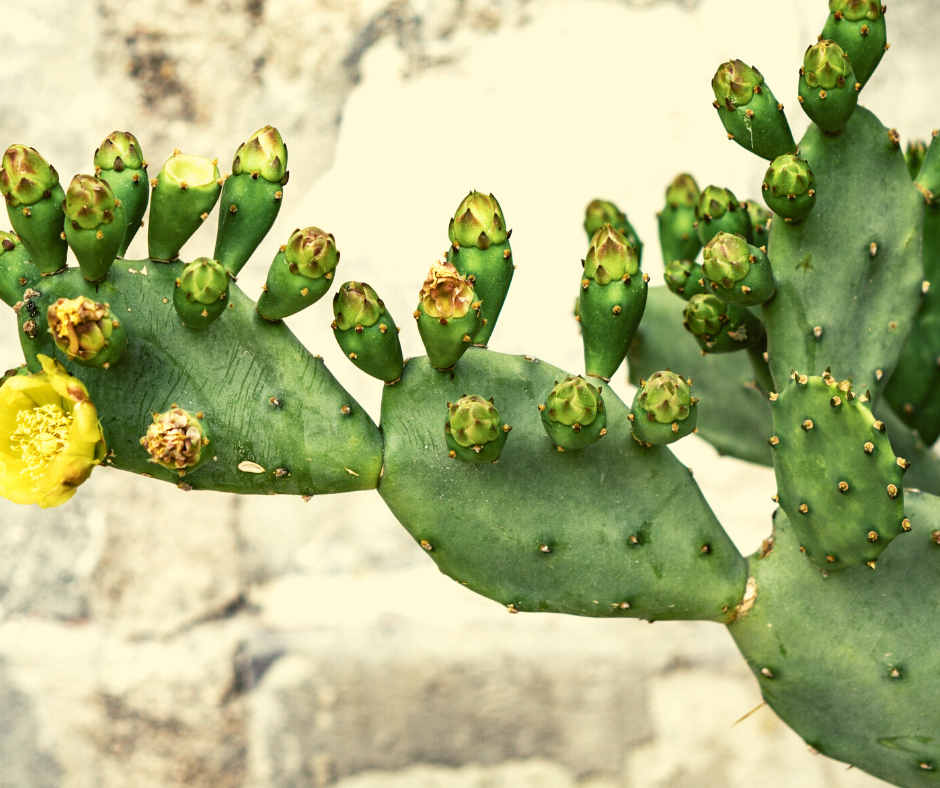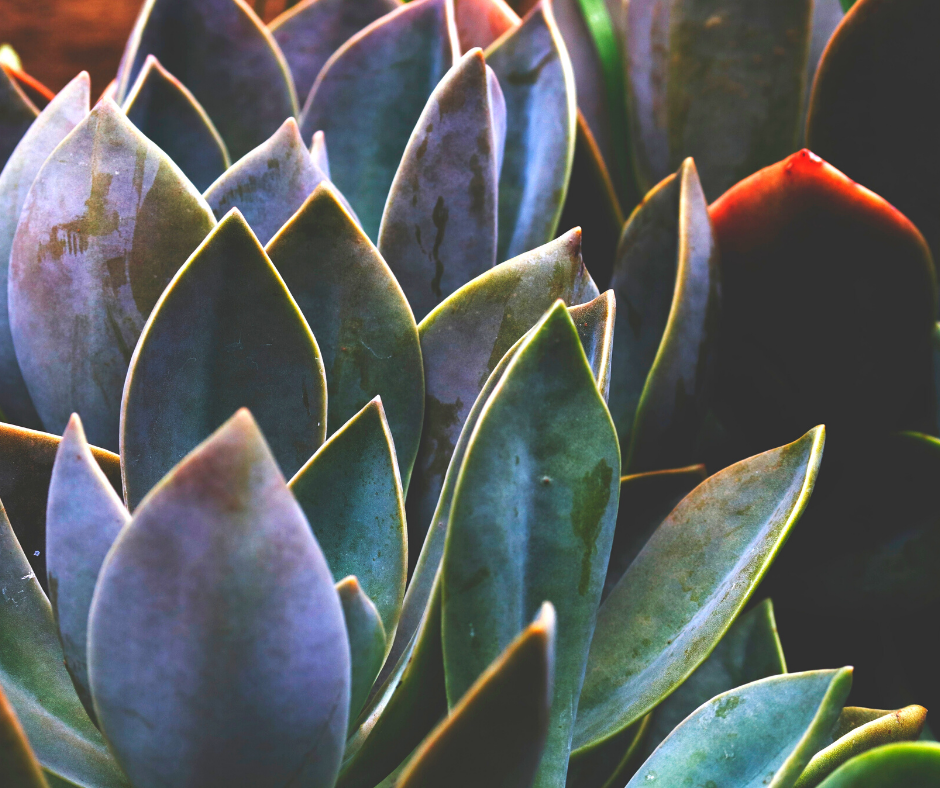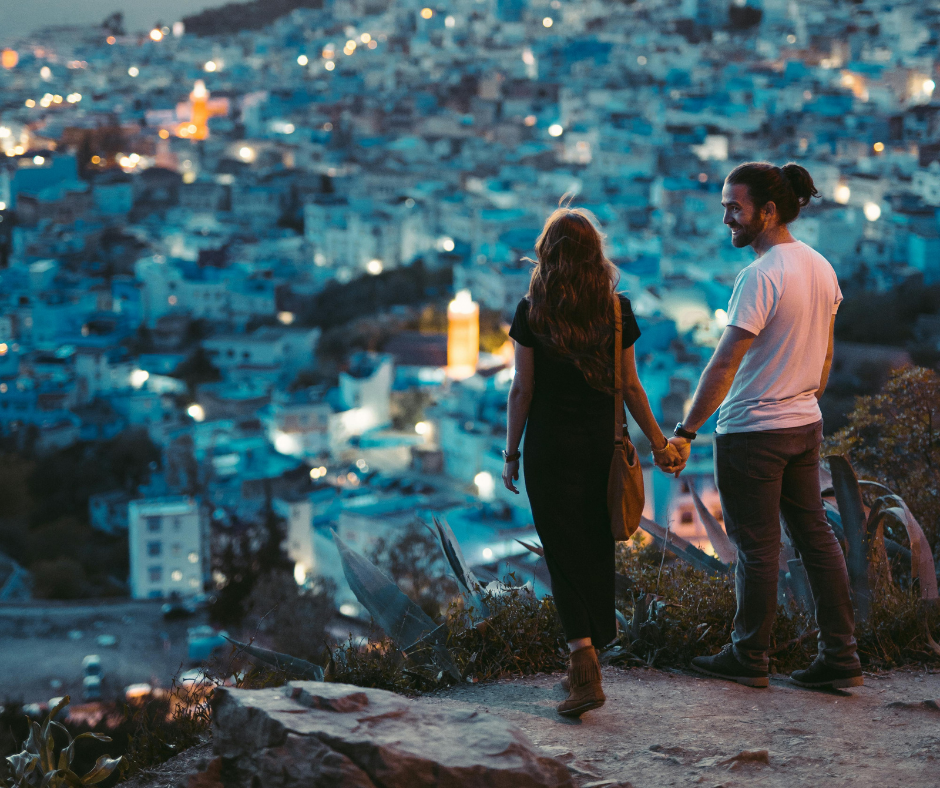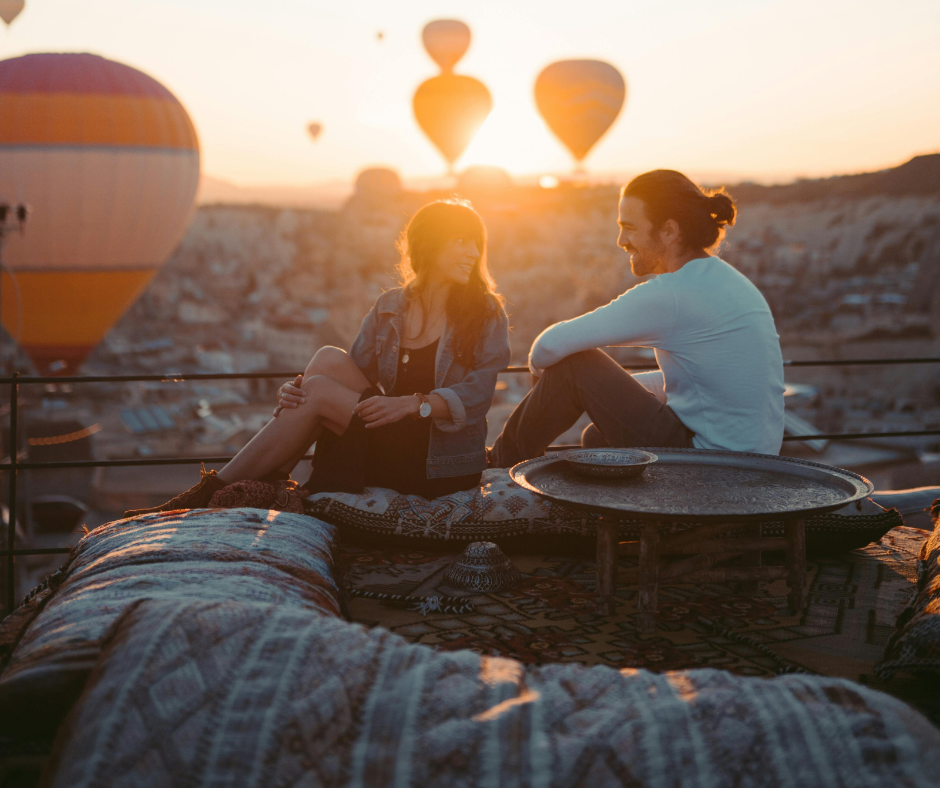Living the nomad life brings a broad range of circumstances. From the rising excitement for a new destination, and the feeling of work-related stress to the emotional state of loneliness on the road.
This article might give you ideas on how to structure your daily life as a digital nomad, and how to improve your physical and mental state in the constant matter of change.
🌱 Travel health insurance for digital nomads
🗂️ #1 Establish routines
One of the reasons you might have started your digital nomad journey is breaking out of the hamster wheel. Some people feel trapped in office jobs, while others seek to experience more than just the city they live in.
Although the reasons nomads embark on this adventure are unique to the person, many people struggle with the amount of freedom and flexibility.
What has helped me personally, when I found myself in mental chaos between workload, and travel planning, is a routine.
Morning routine
A morning routine helps you to start your day structured. The routine doesn't need to follow a fixed time schedule or pre-set order. Although using the mathematical logic of "when this, then that" can help, especially if you want to train your discipline muscle.
Here is my morning routine I try to practice from Mondays to Fridays:
- Making the bed > oil pulling > glass of water > yoga > meditation > gratitude journal > green juice > having a coffee while walking while listening to the news
Alternative morning routine inspirations
- Making the bed > glass of water > journaling > morning run > meditation > healthy breakfast while listening to a podcast
- Making the bed > fitness or yoga session > sun gazing > gratitude journal > fresh juice or smoothie > reading or listening to the news > having breakfast in your new favorite café
Evening routine
Although I can keep up with my morning routine, the evening routine marks the ideal version of a day. I only do this a few times per week. When I am in a place where I know friends, I leave room for spontaneous dinner parties.
- Dinner at a fixed time > going for a walk > preparing tomorrow's work day > watching a short documentary > gratitude journal > going to bed around 10 pm
Alternative evening routine inspiration
- Preparing tomorrow's work day > fitness or yoga > meditation > talking to a friend or meeting up with someone > habit tracker
Having roughly structured mornings and evenings can improve the mental and emotional state. It is helpful if you feel like living in chaos, anxiety, and in the early stages of burnout or depression.
🌓 #2 Balance work and life
The four-hour workweek sounds like a fantastic playbook but how many digital nomads do you know that actually live like this?
Maybe you know many, but I know many nomads - me included - who work way more hours per week. Here are my ideas on how you can balance work and life.
- Structure your workdays in advance: Although you want to keep it flexible when to start and end your workday, it helps when structuring projects, tasks, and to-dos in advance. Simple tools are using a calendar, to-do-lists (e.g. the apps notes or to-doist), the Eisenhower matrix to prioritize tasks (e.g. as Google chrome extension), setting the MIT (the most important task) or One-Thing (one thing you want to accomplish) to start with the next day.

- Leave room for spontaneity & fun: Every day should have some time available for spontaneous meetups, shared meals, nature walks or just anything fun you would like to do. Join a digital nomad meetup you found on meetup.com or Facebook or explore the food scene in the neighborhood.
- Stay fit: Physical fitness doesn't necessarily mean training to climb Mount Everest base camp. Taking the stairs, combining running with sightseeing, going for long explorative walks, or skipping meal deliveries for picking up the meal yourself can be starting points.
- Make time for friends and family: Maybe you are in a different time zone than most of your family and friends, try to make time to regularly check in with people. This helps you to maintain relationships and prevents you from feeling isolated.
- Take care of your money: Either you have a fixed salary or irregular income through freelance work, make a financial plan that includes areas of saving and investing. If you haven't saved up a financial cushion yet for rainy days, today is a good day to start acting. And because saving money for emergencies alone feels demotivating, start to put money aside for investment purposes. This can also be saving up for personal growth and investing in yourself.
🚴🏽♂️ #3 Keep up with your fitness
Maybe you don't have access to ergonomic chairs, and work desks, maybe you sit for way too many hours a day, or you just want to stay or get fit, here are some ideas:
- Fitness: From running to cycling, swimming, or doing other cardiovascular activities help with fitness. Check the local fitness studios for daily, weekly, or monthly memberships. If you struggle with discipline, join fitness classes or invest in a personal trainer.
- Cycling: In many cities, from the USA, Latin America, Europe, and even in Asia you find public rental bikes you can sign up via QR-code and ride them around town. In some cities, the bikes are free for the first 30 minutes.
- Yoga: Yoga and pilates are great ways to improve strength and flexibility. You find yoga studios in many places, check Facebook groups, local blackboards, or fitness studios for classes. Or simply subscribe to a YouTube channel if you travel with a yoga mat. My favorite YouTube channels are Boho Beautiful, Mady Morrison (in German), and Yoga with Ally van Vossen.
- Walking: A free form of fitness is walking. Implement walks in your day and motivate yourself by tracking your steps on your integrated health app on your phone.

🥬 #4 Eat healthy food
The foods we feed our body has not just a direct impact on our physical shape but also on our mental well-being.
Here are some ideas on how to fuel your body with healthy and nutritious food:
- Unsweetened Smoothies: Depending on your current accommodation, you might have a blender. If yes, take a deep dive into the world of healthy smoothies. My favorite recipe consists of chopped pieces of pineapple, cucumber, spinach, and celery, with added coconut milk and a splash of lime. If you want something more filling, try a nutty date smoothie. Mix almond or oat milk with a handful of almonds and a handful of dates.
- Nuts: Crunchy, filling, and nutritious - nuts are a fantastic snack. Reach for almonds, pistachios, walnuts, peanuts, or hazelnuts as they offer proteins, fats, vitamins, and minerals.
- Dried fruits: A handful of dried fruits a day consists of dietary fiber, antioxidants, and valuable minerals.
- Healthy fats & oils: Oils and fats like flaxseed, coconut, or fish oil serve your body rich omega-3 acids. Those oils reduce the risks of diseases and improve asthma symptoms or bone and heart health.
- Water: Stay hydrated. If plain water seems too boring, pimp it up with lime, or cucumber, or lemongrass.
I dedicated an article to the impact of food on mental health.

🛌 #5 Take care of your sleep
Sleep is the time our body regenerates, processes, and renews. Healthy sleep is crucial for physical and mental health.
The following points improve your sleep:
- Go to bed at the same time, and wake up at the same time.
- Keep the temperature cool, around 19 degrees Celsius.
- Keep the bedroom dark, and silent.
- Avoid blue light (in other words, your phone) before bedtime.
- Travel slowly and give your body time to adjust to new time zones.
- If you suffer from a sleeping disorder, establish an evening routine and train your body to slow down, e.g. good-night-story, meditation.
- During the day, stay with this rule: nap early, nap short, or don't nap at all.
If you suffer from insomnia or a sleeping disorder, or if you want to know how sleep impacts your mental well-being, read my article on this topic.

🧿 #6 Practice mindfulness
Mindfulness is a buzzword, and while some people invest in trendy-designed journaling notebooks, others just roll their eyes. Mindfulness can come as walking meditation, journaling, meditation, or just the way we speak.
Here are some ideas on how to practice mindfulness:
- Gratitude Journal: This is the simplest mindfulness practice as it just requires a notebook and 5 minutes of your time. Every morning, write down 3 things you are grateful for. In the evening, write down 3 positive things that happened that day.
- Journaling: No, I am not talking about the heartbroken teenager who fills notebooks with lyrics and memories. Journaling is a proven concept that helps you to get clarity, reduces your inner thoughts chatter, and improves analytical thinking and focus. Writers such as James Clear, author of Atomic Habits, use journaling to boost their creative thinking. Others use journaling to release emotional stress, and some use it as a technique to overcome writing blockages.
How it works:
✢ Find the journaling technique that works best for you.
✢ Practice discipline and commit to a set amount of minutes every day at the same time for journaling.
✢ Block journaling time in your calendar.
✢ Check in with yourself after 3 and 6 months about how journaling had an impact on your well-being. - Habit Tracker: Do you want to start a habit or stop a habit? Do you want to practice discipline? Tracking your habits is a great technique to either start new habits or stop old habits.
Measuring and tracking progress is key to building new habits. It keeps you focused on your goals and boosts your performance. It reminds you to act or motivates you to continue.
How to start:
✢ Watch this quick tutorial if you prefer writing your habits down.
✢ If you prefer using an app check out Done, Habitify, or Simple Habit. - Meditation: Mediation is a simple and sustainable way to reduce stress and practice mindfulness. Creating a meditation routine will affect your thoughts, sleep, and overall inner balance.
Meditating means practicing and you can find plenty of guided meditation videos on YouTube. My favorite channel is The Mindful Movement. You can also signup for apps like Calm or Headspace.
🥰 #7 Maintain friendships
One way to prevent or reduce emotional downtime, or even depression or anxiety is by maintaining our social life.
Traveling couples can find it hard to meet new people as they tend to live in the couple's bubble.
Introverts might find it difficult to engage with strangers, and sometimes we just don't find the right people in a new place.
Here are some ideas on how to maintain friendships:
- Regular calls with friends: Schedule regular phone calls with your friends. Start with reaching out to one of your friends and simply ask for a catch-up call. Try to call 1 friend every month. Or every week another friend. Depends on your social capacity.
- Regular family catch-up: If my grandparents would be still alive, I would call them every month. They were always so curious about my travel adventures. Do you have family members or relatives you haven't spoken to in a while? Maybe you brighten up their day.
- Postcards: A bit old-school but the older generation back home will appreciate a handwritten postcard.
- Memory message: We all know people we spent an awesome time with. Either in school or college, at a previous job, during travels, in our last coliving experience and so on. When someone pops up in my memory, I message the person and tell him/her that I thought of them, check in with them, and sometimes it re-freshes an old friendship.
- Invest in catching up in person: We all have friends we don't see for years but when we are together again, we just catch up where we left off. Sometimes there is no expectation or interest to have in-between-phone calls. Then we have friends they would fade away if we don't maintain the friendship or meet up in real life. And we have friends back in our home countries, who simply don't want to travel. If you want to deepen a friendship with a certain person, or you want to tighten the friendship with a person who wants real-life contact, make the effort and see them.
- Plan travel time together: For nomadic friendships, what could be better than planning to catch up at the next destination? While some nomads have planned and booked itineraries, others are pretty flexible and open to joining you.


🛼 #8 Step out of the comfort zone
- Do something new: Suprise yourself with one new thing you do, eat, experience, and broaden your horizon. By stepping out of our comfort zone, we train ourselves to never stop experiencing. New stimuli increase curiosity and can evolve interests and hobbies, which can lead to new friendships and other connections.
- Break routines: I know, we just established routines. But when we think always the same thoughts, we act always in the same way, which makes us feel the same way. If we want to develop curiosity, creativity, and new thought patterns, we need to start thinking differently, and acting differently. You can start this process by doing just the opposite of what you would normally do. Brush your teeth with the other hand, travel to a remote country, join a choir, or learn a new language. Although routines give stability, routines can also hinder change and progress.
- Improve your communication skills: In a digital world, where we correspond with family, friends, and colleagues through emojis, it is no surprise when communication skills dissolve. Communication is an essential skill to develop social connections. Without saying your communication skills are poor, just think about if there is room for improvement.
- Overcome your fears: When I think about it, I have developed a list of fears, including the fear of deep waters, the fear of lighting, and the absolute disgust for cockroaches, and snakes. I could puke when thinking of loose hair from other people that is why I inspect every hotel room and avoid public pools and pool parties. If I would let my fears and disgusts rule my life, I would have never made it to 1 tropical country. But I lived in central Vietnam for 5 years, with regular snake and cockroach visits, boat trips over deep waters to islands, pool parties, and heavy lighting in summer months. The absolute best time of my life. And the transatlantic cruise is booked, too.
🌈 #9 Be the change in the world
Random acts of kindness can not change the global crises we are facing. But imagine every person would try to improve within their radius. It would make an impact.
Here are some ideas on how you can make someone's day:
- Smile and smile back.
- Help an elderly at the baggage claim.
- Play peekaboo with the crying toddler next to you.
- Hold the door open for the person behind you.
- Be kind in traffic.
- Help someone who is lost at the self-check-in.
- Surprise your partner with extra quality time.
- Practice saying please and thank you.
- Greet your neighbor, the waiter, and the cashier.
- Stay diplomatic when complaining.
- Pick up trash on a walk.
- Write a nice review when you received good service.
- Offer to be the emotional dumpster when a friend goes through hardship.
- Leave your accommodation clean when checking out.
- Invite a solo traveling coworker over for dinner.
🎀 Conclusion
Your emotions, your moods, your experienced stress, or your quality of relationships impact your nomad journey.
Maybe not all of the above-mentioned habits work for you. But I want to invite you to think about the areas in your life you would like to give a bit more attention to.
There is always room for improvement. And as more balanced you feel, the less space you give to stress, and the more you find value in relationships, the more fun this journey will be.









